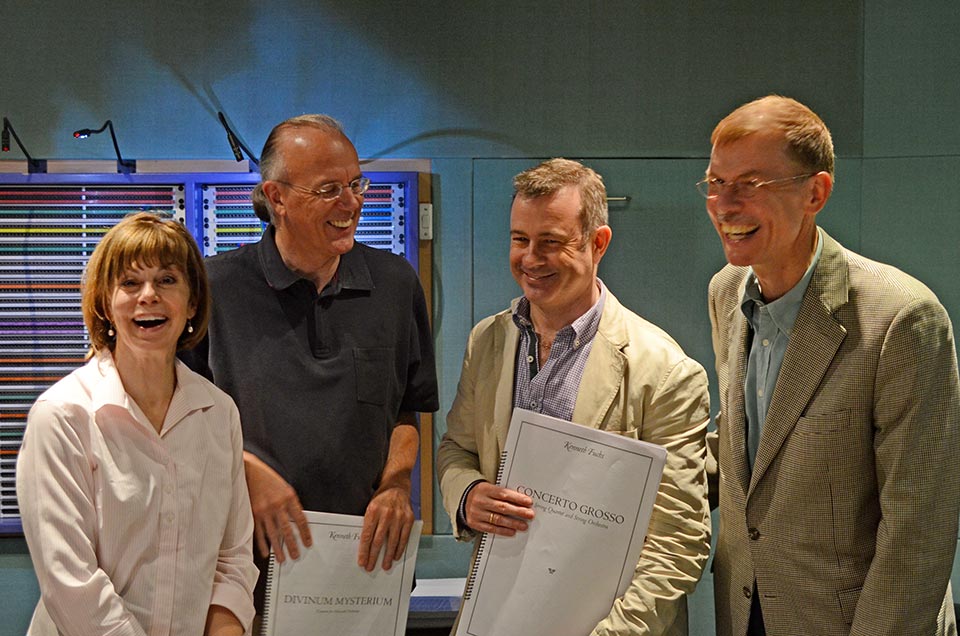Gramophone talks to Kenneth Fuchs
How Don DeLillo’s 9/11 novel inspired the composer’s new work
Kenneth Fuchs responds to Editor-in-Chief James Jolly in Gramophone, October 2014
Where were you on 9/11 and how did you hear the news?
I was at home finishing breakfast. The television was on and all news channels began reporting on the first aircraft to hit the World Trade Center. As I watched, along with millions of other people, the second aircraft exploded into the South Tower.
When you read Don DeLillo’s novel, did musical inspiration come quickly?
For several years, I had been feeling the need to respond to 9/11 in music. Reading the prologue to Falling Man, I knew I had found the creative impetus for what I wanted to write. DeLillo’s unflinching prose, describing the terror and chaos at Ground Zero, immediately inspired musical ideas.
How soon did you realise what sort of piece you’d write?
DeLillo’s protagonist becomes everyman as he experiences the burning twin towers tumbling around him. That character immediately suggested a single human voice collectively supported by a symphony orchestra.
Have you tackled a 12-tone treatment (even if not strictly applied) before?
Yes. While a student, I spent several years wrestling with 12-tone composition, but eventually concluded that it wasn’t the way I wanted to write. Although my music is predominantly tonal, I do write in non-tonal idioms when appropriate to the musical and emotional ideas of a piece. Tonality is about resolving dissonance but the tragedy of 9/11, which called into question all the norms of Western civilisation, is still unresolved. Tonality would have been too limiting.
You’ve developed quite a rapport with the LSO. Are they part of your creative process?
Absolutely. When I write for orchestra, I hear the sound of the LSO, which inspires me. I also think of individual players and write parts to keep them engaged and to share their exceptional musicianship with listeners. When I composed my viola concerto Divinum mysterium for principal viola player Paul Silverthorne, he collaborated with me throughout the process, suggesting more idiomatic ways to write for the viola and contributing musical ideas for me to explore. Having recorded four discs with the LSO during the past decade, I appreciate the orchestra’s immense contribution to my growth as a composer.

Conductor JoAnn Falletta, violist Paul Silverthorne, James Jolly and Kenneth Fuchs, Abbey Road Studios, August 2011